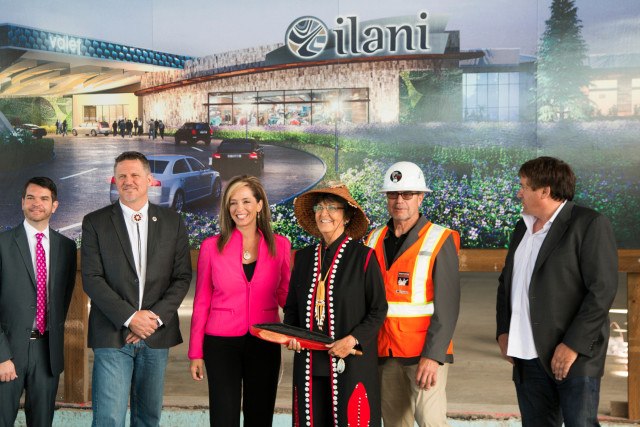US Supreme Court Refuses Washington State Tribal Casino Case, Decision Could Impact Taunton Challenge
Posted on: April 4, 2017, 01:00h.
Last updated on: April 4, 2017, 09:21h.
The US Supreme Court has decided not to listen to a tribal casino appeal in Washington State, a decision that ultimately allows the Cowlitz Indian Tribe’s $510 million Ilani Casino Resort near La Center to proceed without additional legal challenge.

The high court was petitioned by opponents to the casino who felt the US Department of the Interior (DOI) erred in designating 152 acres of land as sovereign Indian territory in 2010. Citizens Against Reservation Shopping, the advocacy group working against the tribe, argued the DOI wrongly used the Indian Reorganization Act of 1934 in approving the acquired land.
The Native American group disagreed, and proceeded with construction of its 100,000-square-foot gambling venue. The facility is nearly complete, and is expected to open later this month.
La Center isn’t actually in the center of Washington, but in the southern part of the state, roughly a half-hour drive north of Portland, Oregon.
Proceed as You Wish
The US Supreme Court’s decision to bypass the Washington tribal gambling case allows the Cowlitz people to move ahead in taking advantage of the gaming compact it reached with the state in 2014. The Ilani Casino Resort will offer Class III gaming including slots and table games.
“This is a triumphant moment for The Cowlitz Indian Tribe because it marks the end of a 160-year journey back to our homeland, and the beginning of a new journey,” Cowlitz Chairman William Iyall said in a statement.
Opponents say the Cowlitz Tribe, which was only reaffirmed by federal authorities in 2000 and established a reservation in 2010, say the Indian Reorganization Act mandates that tribes can only have newly acquired land deemed sovereign by federal authorities if they were recognized prior to 1934. Federal courts have struggled over which side is correct.
Tribes petitioning the DOI to classify recently purchased land as sovereign property often argue that their people have been in the area for generations, and it’s a mute point whether the US government properly recognized their communities.
Cowlitz said the land they bought seven years ago was part of their “aboriginal” community.
Taunting Taunton
While the high court’s dismissal is good news for Cowlitz, it might signal bad news to come for the Mashpee Wampanoag in Massachusetts. The tribe there is trying to build a $1 billion casino resort in Taunton on 151 sovereign acres.
However, a district judge has ruled that the DOI didn’t posses the right to classify the property as reservation land in 2015. Similarly to the Cowlitz, the Mashpee tribe was only recognized by the US government in 2007.
Last fall, Massachusetts District Judge William Young dismissed the Indians’ appeal. The tribe said that was actually a good thing, as it freed the case to move to the US Supreme Court. But with the top federal judicial branch not willing to call the Washington State case, the odds have presumably shrunk for the Mashpee people.
The ongoing trial has held up the Massachusetts Gaming Commission from awarding the third commercial casino license designated for the southeastern part of the state. Should the Taunton project be allowed to progress, the state gaming regulator feels the area would become oversaturated with gambling.
No comments yet